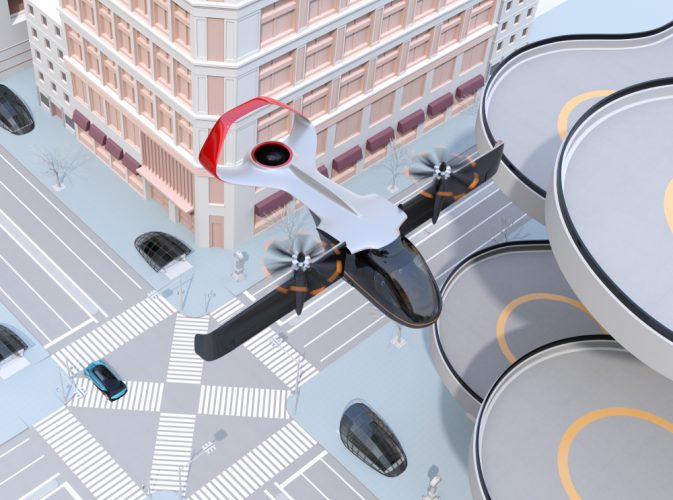The UK government’s Innovate UK has announced it will invest up to UKP30 million in innovation projects as part of phase two of its Future Flight Challenge, including airspace integration programmes.
“We will fund projects that develop integrated aviation systems and/or vehicle technologies that enable new classes of electric or autonomous air vehicles. Solutions should be able to be integrated into a mature operational environment, ensuring safe and reliable operation in flight and on the ground.
“This is phase 2 of a 3-phase programme. In this phase, we are funding projects up to 18 months duration. We particularly welcome projects of shorter duration who can deliver rapid impact.
“This competition phase has two strands:
- Strand 1, the ‘fast track’ strand encourages applications from smaller businesses and organisations who might not work within the aerospace or aviation sector.
- Strand 2 will focus on larger projects and encourage applications that seek to integrate technologies and systems.
“We plan to open phase 3 of this programme in winter 2021 when we will invite projects, including those who are not part of phase 2, to demonstrate an integrated ‘system of systems’ approach to the operation of new air vehicles in non-segregated airspace.
“For both strands, your proposal should describe routes into phase 3 and how you would work with other consortia. Your project’s total eligible costs must be between UKP150,000 and UKP500,000 for strand 1 (up to 70% of project costs can be covered depending on business size) or UKP500,000 to UKP10 million for strand two (again, up to 70% of costs can be covered).
“In addition to the match funding, projects must also state in their application how much follow-on investment is expected in the 24 months after project completion, and how this will be reported to Innovate UK. All projects must end by 30 March 2022. Projects can last between 6 months and 18 months. For strand 1, we particularly welcome projects of shorter duration which can deliver rapid impact.
“The aim of the competition is to develop and demonstrate integrated aviation systems enabling the introduction of new classes of electric and/or autonomous air vehicles. These could include drones, urban air mobility vehicles or electric regional aircraft.
A ‘system of systems’ approach is required to address the interdependencies between vehicles, the airspace and the broader infrastructure of aviation, including operators, service providers and end users. Projects are expected to address the integration challenges of new air vehicles, and by default their innovative capabilities, for example autonomy, into the aviation system. The aviation system is the operational framework into which air vehicles fly in and out of airports, airspace, rural and urban environments.
“Projects are sought in the following areas:
- The development of a system of capabilities which will lead to a specific use case demonstration. This demonstration can be within the timescales of phase 2 or could require further activity to develop and demonstrate in phase 3. In either case, we will require a roadmap for your proposed activities in both phases.
- Development of enabling systems of capabilities that could be used nationally, aiding UK registered businesses collectively to accelerate commercialisation whilst influencing international regulatory developments. We are particularly interested in the development of national capabilities in:
- networks of test facilities
- data infrastructure
- aviation system simulations or “digital twins”
“We are looking to fund a portfolio of projects, across a variety of technologies, markets, technological maturities and research categories. Priorities would be given to:
- projects with multiple partners across multiple sectors and disciplines
- micro and small SMEs, especially first-time applicants and from outside the aerospace sector.
“For development projects, you can focus one or more of the following but will ideally take a ‘system of systems’ approach covering several of:
- air traffic management (ATM) and unmanned traffic management (UTM) systems
- both physical and digital infrastructure to support future flight objectives
- autonomy
- digital and communications systems
- new business models
- public acceptance
- transport integration
- vehicle technologies enabling integration to the new aviation systems
- simulation
- non-aerospace regulation
- viable, challenging, use cases
- total security systems
“This is not an exhaustive list. Projects not on this list but can address the Future Flight Challenge objectives may also be considered in scope.”
For more information
https://ktn-uk.co.uk/funding/future-fight-challenge-phase-2-development-and-fast-track
(Image: Chesky/Shutterstock)




